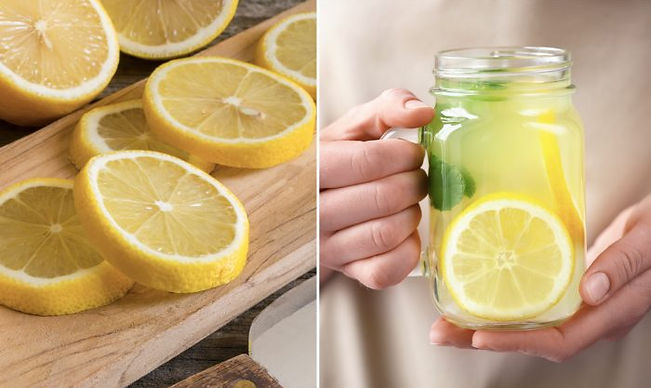
Toronto's #1 Food Safety Trainer
KEEPING THE INSPECTOR AT BAY AND FOODBORNE ILLNESS AWAY

Never Ever Ask for Lemon Wedge in Your Drink at Restaurants, Here’s Why It’s a Bad Idea
By Robert Jay Watson
If you’re like me, one of your favorite things in summer is going to a restaurant and getting a big glass of ice water and getting it refilled as many times as you want.
To make these hydration sessions even better, I always ask for a slice of lemon to go with it. What could be better than the tangy, citrusy flavor and the huge shot of vitamin C you get with it?
Well apparently, you’re getting a lot of other things on that lemon wedge too, only they’re not the ones you want.
We all know that lemons, along with their citrus cousins oranges and grapefruit, have incredible anti-bacterial and even anti-fungal properties. The citron, the genetic ancestor of our modern yellow lemon, has an official name that explains everything—citrus medica.
In fact, a recent study showed lemon juice can be used as a cleaning agent to kill some of the pathogens that cause diarrhea. So surely, given the wonder-working properties of citrus, I should want that lemon wedge in my drink more than ever, right? Not so fast!
The problem definitely has nothing to do with the lemon itself. As usual, human error is to blame, not nature! A study conducted several years ago called Microbial Flora on Restaurant Lemon Wedges took a very basic approach to the question “What’s on the lemon wedges that restaurants put in our beverages?”
Their method was simple. Use a swab to take any cultures off the lemon rind and flesh placed in diners’ glasses of water or soft drinks and test them in the lab. As the study’s authors wrote: “samples were collected surreptitiously, without the knowledge of the restaurant staff” as well as “before a sip was taken, and before the lemon slice was touched by the patron.”
They then observed which cultures grew and flourished from the samples. The results were nothing less than shocking!
Off the 76 lemons tested at almost two dozen different restaurants, a whopping 70 percent “produced some microbial growth, either from the rind, the flesh, or both.” When the study revealed the list of bacteria that were present on the rind and flesh, it included several forms of e.coli, which can produce toxins that cause illness and even lead to fatalities.
Perhaps most disturbing was the presence of enterococcus faecalis(also known as streptoccocus faecalis). The name says it all. These bacteria can only be the result of fecal contamination from humans or other animals such as mice or rats. Think about that for a second as you contemplate the lemon wedge in your iced tea.
The researchers who authored the study wrote that these “could have come from the fingertips of a restaurant employee via human fecal or raw-meat or poultry contamination. They might have contaminated the lemons before they even arrived at the restaurant.”
Meanwhile, the study also found the extensive evidence of yeasts on the lemons. While restaurant kitchens can have lots of yeasts in the air from all the different ingredients and many lemons are sliced at the beginning of the day and then sit out for many hours, there’s another more unsettling possibility.
“The yeasts could have originated from oral, fecal, or vaginal secretions contaminating the fingertips of a restaurant employee or another food handler.” Well, that’s not really what you want to hear.
While the study didn’t look at alcoholic beverages, which frequently feature sliced citrus as a garnish as well, the same processes are probably at work, namely restaurant staff not properly cleaning their work surfaces or kitchen tools or simply not washing their hands after using the bathroom.
As for me, I think I’ll be asking for my drinks without lemon in the future unless it’s at a restaurant that has a high standard of hygiene!